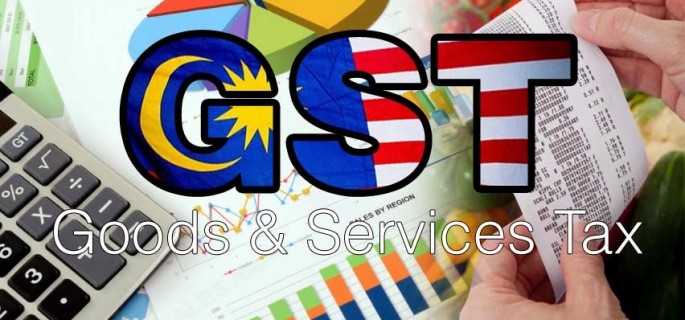How to Navigate Singapore GST Registration for Your Company
How to Navigate Singapore GST Registration for Your Company
Blog Article
Browsing the Intricacies of GST Registration: Expert Tips and Finest Practices for Smoother Compliance
Navigating the intricate landscape of Item and Solutions Tax Obligation (GST) enrollment demands a keen understanding of the evolving regulative structure and meticulous interest to information. As services strive to make certain compliance and stay clear of challenges, professional guidance and best methods can act as important compass factors in this facility surface. From figuring out enrollment needs to utilizing technical devices for streamlined processes, the journey in the direction of smoother GST conformity is nuanced and diverse. Stay tuned to reveal necessary methods and insights that can help companies steer through the intricacies of GST registration with skill and self-confidence.
Understanding GST Registration Demands

In addition to turnover thresholds, businesses engaging in interstate sales or offering taxed solutions might additionally be needed to register for GST, even if their turn over is below the suggested limitation (Singapore GST Registration). Recognizing these needs and thresholds is vital to stay clear of fines and ensure smooth operations within the lawful structure
Moreover, businesses need to gather and prepare the required documents, such as evidence of identity, address, company incorporation, and savings account details, before initiating the GST registration procedure. Failing to give precise details or meet the registration due dates can result in fines or various other lawful effects. For that reason, organizations need to remain informed concerning the certain GST registration needs applicable to their operations to keep compliance and stay clear of potential problems.
Organizing Important Documentation
Organizations beginning on the GST enrollment process have to diligently put together and arrange the essential documentation required for submission. The essential papers typically needed for GST registration include proof of service enrollment or identity, incorporation and address evidence of the business proprietors or partners, bank account information, evidence of principal area of company, and consent kinds. Ensuring that these documents are easily available and organized can improve the registration process and protect against delays or beings rejected.
To efficiently organize important paperwork, companies must produce a centralized system for storing and categorizing the required paperwork (Singapore GST Registration). Using digital storage space options can aid preserve easy access and make certain that papers are safely saved. Additionally, developing a list of all necessary documents can function as a useful tool to track what has been collected and what is still needed for submission

Leveraging Modern Technology for Effectiveness
Enhancing functional effectiveness via technological combination is paramount for modern businesses browsing the intricacies of GST enrollment. One of the vital ways modern technology can help in GST registration is with the use of automated software program options.
Additionally, modern technology can help with smooth interaction with tax obligation authorities. On-line portals and communication devices enable companies to submit documents, resolve queries, and get updates in a more reliable fashion. This not just accelerates the registration process however also helps in keeping reliable and clear communication with the appropriate authorities.
In addition, cloud-based storage space options offer a secure system for businesses to shop and accessibility their financial information, guaranteeing conformity with GST record-keeping needs. By systematizing information storage and automating procedures, companies can improve review their general efficiency and accuracy in GST enrollment treatments.
Proactive Compliance Monitoring

To make certain effective proactive conformity monitoring, organizations ought to establish durable interior controls, conduct regular audits, and leverage automation devices for real-time monitoring of GST deals. Routine training sessions for staff members on GST compliance demands can also aid in creating a society of conformity within the organization. Furthermore, engaging with tax specialists or specialists can offer valuable insights and guidance on browsing complicated GST regulations.
Engaging With Specialist Consultants
Involving seasoned tax obligation professionals can significantly boost a firm's understanding and compliance with detailed GST regulations. Expert consultants bring a wide range of expertise and experience to the table, assisting organizations browse the complexities of GST registration effortlessly. By leveraging their knowledge, firms can make sure accurate filings, reduce the threat of errors, and stay updated with the current regulatory modifications.
When involving with expert specialists, it is necessary to choose experts with a solid record in click here to find out more GST conformity (Singapore GST Registration). Seek consultants who have a deep understanding of the relevant laws and policies, as well as experience dealing with companies in your market. Reliable communication is type in this partnership, so ensure to clearly specify your assumptions and develop regular touchpoints to review progress and resolve any problems
Moreover, specialist professionals can give beneficial understandings and advice on optimizing your tax obligation approach, determining potential cost-saving chances, and enhancing your compliance procedures. Overall, spending in professional working as a consultant services can go a long means in ensuring smoother GST compliance and avoiding pricey here are the findings errors.
Conclusion
To conclude, browsing the intricacies of GST registration needs an extensive understanding of the needs, organization of important documentation, leveraging technology for effectiveness, proactive compliance tracking, and engagement with expert specialists. By following these ideal techniques, businesses can guarantee smoother compliance with GST laws and avoid possible fines or penalties. It is essential to stay notified, positive, and thorough in managing GST registration to maintain conformity and promote monetary honesty.
To make certain compliance with tax obligation laws, businesses have to thoroughly comprehend the intricate needs for GST enrollment. Goods and Provider Tax (GST) is a value-added tax obligation levied on a lot of items and services in a country, making it critical for services to sign up for GST to avoid legal repercussions.In addition, organizations should gather and prepare the needed documentation, such as evidence of identity, address, organization consolidation, and financial institution account information, prior to initiating the GST enrollment procedure. Organizations should remain educated regarding the certain GST enrollment requirements suitable to their operations to maintain compliance and stay clear of prospective concerns.
The crucial files usually needed for GST registration consist of evidence of business registration or identification, address and consolidation proofs of the company proprietors or companions, financial institution account information, evidence of primary location of company, and permission kinds.
Report this page